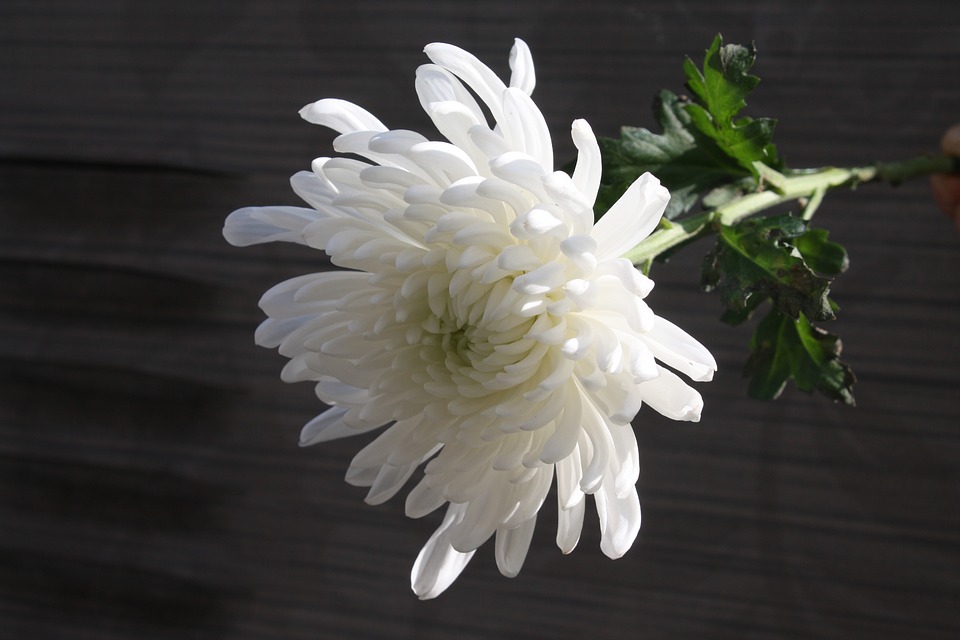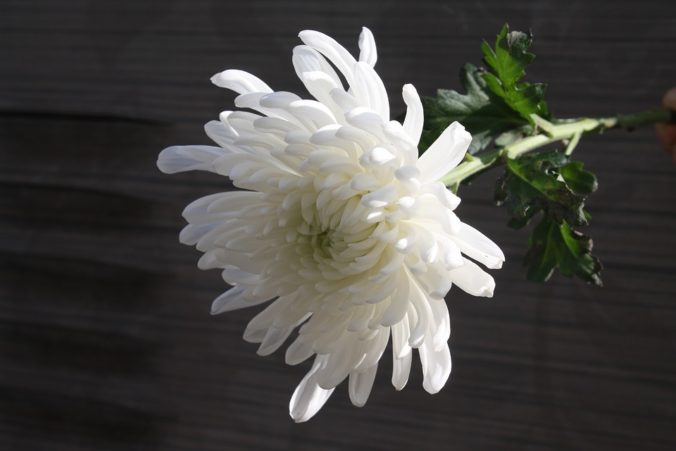
This is probably the most important article I have ever written. Rowland Croucher gave me the huge honour of writing it in the wake of the passing of his dear wife, Jan. This is more his article than mine.
Many readers will be aware that Jan Croucher, wife of counsellor and pastor to many, Rowland, passed away recently after a four-year battle with cancer.
A few months before Jan’s passing, Rowland shared on Facebook the depth of grief he was experiencing as he watched his life partner of 57 and a half years become weaker and sleep for most of the day. His own summary expressed it best:
“Friends, it’s taken nearly 80 years to discover my greatest area of ignorance: I have never experienced such deep sadness ever before…
I need your help.
Jan is dozing in the recliner chair next to me. She now sleeps about 22 hours in every day. (At this point she stirred and huskily said ‘I’m so weary…’)
There’s an ache deep in my being… Maybe sooner rather than later I’m going to lose her, the love of my life…
What spiritual/emotional resources are there to cope with the huge void she’ll leave in my heart???
As a pastor I’ve shared ‘grief’, genuine grief, with hundreds of people.
But this is different. Instead of going away the sadness goes deeper, and deeper…”
The fact that Rowland’s post was acknowledged by 520 people and received 253 comments reflects not just the esteem in which he and Jan have been held by so many, but that grief touches something inside all of us that goes to the very core of who we are.
Life is difficult. Such were the opening words of M. Scott Peck’s bestseller, The Road Less Travelled. In those three words he described what we all know to be true. Suffering and death are constants in this world and are a reality that not one of us will escape unless Jesus returns beforehand.
Viktor Frankl, in his book, Man’s Search for Meaning, in which he describes his experience as a prisoner in Auschwitz during the Second World War, quotes Friedrich Nietzsche in saying, “To live is to suffer. To survive is to find meaning in the suffering.” When I spoke at a church gathering a few years ago, I told of my own recent suffering. At the time I was going through a divorce and had recently been made redundant from the best job I had ever had.
As I spoke to what was a group of mainly young adults, I reminded them that if they haven’t experienced intense suffering in their lives yet, they would. It is a rare person who goes through life untouched by suffering that shatters the very foundations of your identity.
What do you do with grief so intense as that caused by the passing of a life partner of almost 60 years, or a divorce, or a job loss? We cope in different ways of course. Many seek to escape, unable to face the pain; others try to face the pain alone, isolating themselves, whereas others seek the comfort of loved ones.
I have done all three during my suffering, and I found that it was only through facing the pain with a few people walking with me, hearing me, that gave me the strength to continue. I emphasise the word ‘hearing’. It is so different to just hearing words. As I cried over my divorce and shared my deepest pain with my counsellor, I felt heard. He didn’t say a lot, which frustrated me at first (I just wanted him to fix me), but he always affirmed me in my pain, in my shame and in my tears. In the process something shifted in the core of my being. Shame became dislodged and healing began.
Another type of response is that by Horatio Spafford, writer of the hymn, It Is Well With My Soul. Spafford wrote that hymn during his own grief. Having lost all four of his daughters in a shipwreck, and in which his wife was the family’s only survivor, he embarked on the next ship to be with his wife. When the ship got to the place where his daughters’ ship had gone down, he told the captain to stop the vessel as Spafford went down below and wrote the words to this famous hymn.
As I reflect on Spafford’s response, I also think of Job’s ‘comforters’, his friends who told him that he must have sinned in some way to bring his immense suffering on himself. Often the best form of comfort to someone who is in deep suffering is to sit with them, not say much, and just spend time with them. We crave relationship and solace in our sadness; we are designed for it, and to feel heard and acknowledged by a trusted friend works wonders.
The human cry is for love and affirmation. I experienced that during my own grief process, and it is what I saw in the hundreds of comments for Rowland when he so courageously expressed his own sadness on Facebook. I have never experienced the death of a life partner, but divorce is a death too, as anyone who has gone through it knows only too well. When you go through such pain, you are stripped bare, and you start to wonder if there will ever be an end to the suffering.
When we acknowledge our pain, we come face to face with our own human fragility. So, when the tears well up, it is crucial that we let them flow. At the height of my grief, the pain was so close to the surface that I was able to set aside time in the morning before work to just lie on my bed and sob, and do the same in the evening when I arrived home. It was soul-crushingly painful, but it helped me heal during those long days.
My experience, and what Rowland and Jan have been going through, reminds me of something I have heard a few times in my life, that life is about how you deal with loss, ultimately to the loss of your life. When you experience deep loss, the pain never actually goes away. It becomes part of you. It may lessen over years but it is always there.
Good psychologists (and good science) tell us that expressing our grief is crucial for healing. This is often more socially acceptable for women than men, and explains the anger and pain that is pent up in so many men in our culture, and that results in violence to others and to ourselves.
It is so important for us to cry our tears, to let them flow. There is no timeline for grief. Don’t let anyone tell you that you should be over something by now. Such a response, though probably sincere, is dangerous and harmful.
Some of the responses to Rowland’s request for wisdom in his post simply suggested that there are no words but tears. I can imagine that he would have felt held in the many arms of love as he read those moving and heartfelt comments.
Being held like that helps us to accept our grief. We spend so long trying to deny the pain. The human heart can only bear so much. Our souls ache and our hearts break as we eventually come to realise that what we had before really is gone and is not coming back. It is then that the sobbing, welling up from deep within us, seems to have no end.
I have found that the people I have met who are the most mature, and who ‘get it’ when it comes to comforting others in their grief, are those who have experienced deep suffering themselves. They are the wounded healers, to use a term from Henri Nouwen. They don’t have pat answers or tell you to have more faith; they are the ones who have been through hell and have come out the other side, knowing God more deeply and understanding the Man of Sorrows in a way that few others do. I have always been encouraged that the shortest verse in the Bible, John 11:35, is also the most human, and it was expressed by the Son of God himself.
We have a God who weeps when we weep, who suffers with us, who has been through it all and come out the other side. He was resurrected but with nail-scarred hands; he had a new body but still had the wound in his side. This is the hope for all who suffer. Our wounds forever shape us, but they don’t define us. When we think there is no end to grief, we are comforted with the truth that there is also no end to hope.
Jan is now with the Lord. Her pain is gone and she is awaiting her own resurrection. Her scars have shaped her but not defined her, and she will finally know now, in the fullest sense of the word, that there are no more tears, no more pain and no more death. And on that wonderful day of resurrection, Rowland will see his love again. I can picture them laughing and embracing together. May that day come soon, because until then we grieve.
Comments in response to Rowland Croucher’s Facebook post on sadness
No words just love.
No words can express the journey of the heart at these times, but it is not the end.
A mentor of mine before he passed away told me “life is a walk with God… the longer your life the longer your walk, each day you return home. Until one day he turns and says ‘we are closer to my home than yours; why not keep walking with me’”.
Thinking of and praying for you both. I found Lewis’ A Grief Observed raw and somewhat comforting after my mum passed very suddenly. In the end there are no words that express the depth of loss and longing – the greater the love the more it hurts.
The cost of great love is the reality of great pain. It goes deeper because your love is deep. I pray that the depth of your love and pain will enable you to receive the even deeper love of God.
From Thielicke: “Know that everything that comes to you comes through the hand of a loving Father.”
The road of grief is so unknown. I feel the verse from 1 Corinthians 13:12 may be something to hold on to: “For now we see through a glass, darkly; but then face to face: now I know in part; but then shall I know even as also I am known.”
The person (a scholar) who helped me understand the Triune embrace of God said to me on the death of his much beloved wife after decades and decades of marriage: “I sat with Mary after she died and I understood glory as never before.”
We grieve most who/what we love most. Let the tears flow, brother. We hold you both in our hearts. God holds you in hands that never let go. Grace.
Rowland – our thoughts and prayers are with you both and family. Is and Don send their love. I wonder whether the intimacy God intended for marriage – and hence the pain of suffering and loss you refer to – goes back to the “bone of my bone and flesh of my flesh”.
Jesus wept. We weep with you.
This article first appeared in The Melbourne Anglican.





Leave a Reply